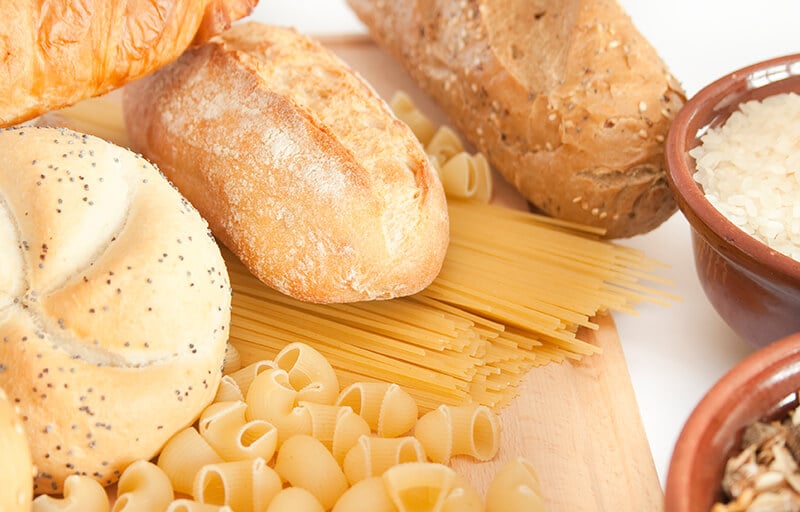Sometimes it just seems unfair that all the really delicious things also tend to be the unhealthiest things you can eat. And when it comes to your teeth, even healthy foods may compromise your oral health. But luckily, what is good for your body is usually also good for your teeth.
If you want to keep your smile strong and bright, pass on consuming the eight things below – or at least put a limit on how much and how often you indulge. And after you’ve had your treat, rinse your mouth with water. Hold off on brushing for at least an hour, as many of the below temporarily soften tooth enamel. Wait for your teeth to recover before brushing.
Eight Things You Should Avoid
Added sugars: Sugar is your teeth’s worst nightmare, as it feeds oral bacteria that then release acids which weaken tooth enamel. This dental erosion process creates cavities, which often get deeper and bigger over time as the decay works its way down to the soft pulp inside the tooth. Simply stated: sugar eats your teeth. Foods with naturally-occurring sugar, like fruit, at least has nutritional benefits (rinse with water after eating) but in general, foods with added sugars – such as sodas, sports drinks, breakfast cereal and snack foods – are just a dietary wasteland that will destroy your smile and your health.
Sugar-free foods: Recent research by the University of Melbourne’s Oral Health division found that sugar-free foods and drinks with acidic additives and low pH levels can damage the enamel, regardless of whether it contains sugar or not. For example, the research team found that sugar-free drinks like Diet Coke can soften enamel by 30 to 50 percent. Sugarless gum is fine, though, just pick a minty flavor and skip the citrus-spiked gums.
Sticky Sweets: Dried fruits, raisins, those yummy “health” bars – all are bad news for your teeth. Not only do they have sugar but they also cling to your teeth, delivering a concentrated dose of sugary evil. A small candy bar is actually better for your teeth than a bag of raisins.
Refined Carbohydrates: In general, stay away from white foods like bread, pasta, crackers, etc. White usually equates to food that has been overly-processed, purged of its natural nutrients, and filled with artificial flavors and who-knows-what-else. And simple carbs break down into sugar very quickly, so they’re bad for your teeth. Complex carbs are the better choice.
Coffee: What is life without the occasional happy burst of caffeine? Sadly, coffee is an acidic drink that can weaken dental enamel and enable bacteria to penetrate the tooth’s softer inner pulp. Plus, coffee can stain your teeth. Happily, you can find tasty low-acid coffees, and rinsing your mouth with water will reduce the acidic effect too. Regular cleanings can help keep coffee from dimming your smile.
Citrus Fruit Juice: Fruit juice does double dental damage, as it’s packed with sugar and is acidic. The acid softens your tooth enamel, while the sugar feeds bad bacteria.
Festive Cocktails: Most contain fruit juice, see above for the damage details on sweet, acidic juices. Colorful or dark-colored mixed drinks can also stain teeth, especially when the enamel has been softened by the sugar and acid in a cocktail. The same holds true for red wine and darker beers. And alcohol tends to dry out your mouth – remember, saliva is your body’s way of clearing away debris, bacteria and dental plaque.
Ice: Chewing ice can cause cracked and chipped teeth, damage to tooth enamel, problems with existing dental work such as fillings and crowns, and sore jaw muscles. You may also find your teeth become extremely sensitive to hot and cold drinks and foods, and are more prone to cavities.
Popcorn: even if you skip the salt, sugar, oil, butter and other festive toppings, popcorn can cause dental damage. In fact, popcorn is infamous among dentists for causing periodontal (gum) abscesses. Popcorn hulls – those rugged, rounded shells you find on corn kernels – slip into the tiny gap between teeth and gums and are often very hard to remove. Left to linger, they cause inflammation that can often develop into a painful, pus-filled sac. You don’t have to avoid popcorn, but be aware it can cause problems and (always!) head to the dentist ASAP if you do experience pain in your gums, teeth or jaw.
And speaking of dentists, if budget constraints are keeping you from getting the dental care you need, consider getting a dental savings plan.
An alternative to traditional dental insurance, dental savings plans offer plan members savings of 10%-60% on a wide variety of dental treatments. To find out more about dental plans, visit dentalplans.com.
